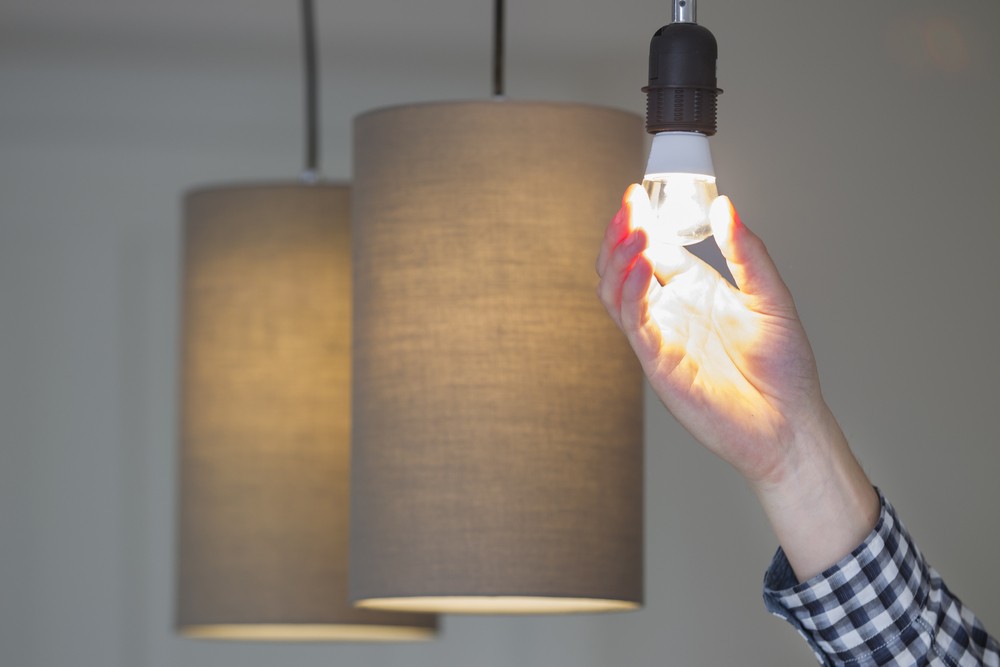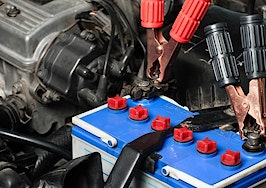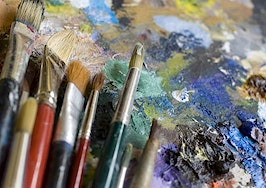- Given the fast-paced nature of real estate, carrying around essential emergency tools is necessary.
- Carry light bulbs, cleaning products and a toolbox to ensure the home looks its best.
- Don't forget graphite powder, a measuring tape, air freshener and protective gear.
The typical real estate agent never leaves home without the basics — brochures, “for sale” signs, open-house flyers and a fully charged cell phone, to name a few.
But what else do agents need when something goes awry at the very last minute?
Given the fast-paced nature of real estate, carrying around essential emergency tools is necessary. You probably won’t have time to run to Ace Hardware five minutes before an open house so you can change a lightbulb, or to the nearest 7-Eleven to pick up paper towels, especially if your listing is in a remote location.
Instead, keep these items in your mobile office — also known as your car.
1. Light bulbs
Lack of lighting makes properties look like they haven’t been cared for in a while. You’ve spent all that time cleaning and staging, so you shouldn’t allow your efforts to go unnoticed.
Ample lighting is also important for listing photos, so don’t designate your bulbs solely on open houses. Keep a spare pack in the trunk of your car at all times.

Photodiem / Shutterstock.com
2. Cleaning products
In case of emergency, keep Lysol wipes, paper towels, wood polish, leather polish and carpet cleaner on-hand. If you’ve got a big trunk, a handheld vacuum can be even more helpful for unanticipated spills.
Some additional products to consider are Mr. Clean Magic Erasers (perfect for removing marks from walls and brightening counters and sinks), tile cleaner for dingy-looking showers or backsplashes, and trash bags.
3. Toolbox
Storing a small toolbox under your seat or in your trunk can be beneficial for your real estate career and personal life. Make sure your tool kit includes the necessities, such as a flathead screwdriver, Phillip’s head screwdriver, a hammer, nails of assorted sizes, pliers, electrical tape and screws. A pocket-sized or keychain flashlight can come in handy as well.
[Tweet “Make sure your real estate agent tool kit includes the necessities.”]
You might not be making actual repairs, but you could need tools to access attic or under-house areas. At minimum, you should make sure you’ve got screwdrivers handy for such situations.

Image courtesy of Bronzaclose / Wikipedia.com
4. Batteries
Various electrical equipment calls for assorted types of batteries, but 9-volts are a must-have for smoke detectors.
Attending an appraisal? It might not be a bad idea to bring your own smoke detector.
5. Lock and hinge lubricant
Buyers don’t want to hear the front door creak the first time they walk into a potential future home — and you definitely don’t want the key to stick in the lock. Use a lubricant on tired locks and hinges.
Some say WD-40 holds dust and dirt and can be bad for locks in the long run, whereas graphite powder helps maintain the lock without gumming it up.
6. Air freshener
Want to make a potential buyer feel at home while simultaneously concealing musty smells? Depending on the home, you might set the ambiance with some “flameless” candles.
There are many varieties of plug-in air freshener, too. And for everyone’s sake, an air freshener in the bathroom is always appreciated.
Odor-eliminator sprays can also help spruce up a room in a pinch.
7. Bathroom amenities
Clients might need to use the bathroom when viewing a property of interest. Keep toilet paper within view, and don’t forget a plunger — just in case.
8. Shoe covers
During open houses and showings, you’re hoping more than a few pairs of shoes walk through the door of your latest listing. However, the more visitors, the more dirt, and this time of year in locations experiencing fall, wet leaves have a tendency to stick to the bottoms of shoe soles.
Even if you plan to wipe floors throughout your open house, displaying shoe covers implies to buyers that the home or apartment is in pristine condition and impeccably maintained.
[Tweet “Displaying shoe covers implies to buyers that the home or apartment is in pristine condition.”]
9. Protective gear
Selling a flip? Make sure you have gear to protect yourself and others. Face masks for mold, first-aid kits and plastic gloves prevent sickness when entering an older or vacant property.
Carrying a deterrent to help protect against assault — like mace — is becoming increasingly important for real estate agents. Unfortunately, most of the people you interact with are strangers, so being cautious can’t hurt.
10. Measuring tape
Your client or potential buyer may have dimensions for a certain pool table or entertainment center on their must-have list. Save them the trouble by measuring beforehand and keeping copies of floor plans for distribution.
Having a measuring tape on hand, too, allows the buyer to mark the measurement and helps alleviate any doubt or questions about the space.

11. Outdoor supplies
You probably remembered the “for sale” sign, but did you bring everything you’ll need to post it? Don’t forget zip ties for yard signs or other quick fixes around the house.
And if you live in an area where it’s muddy, rainy or mosquito-infested, consider stashing rain gear or bug spray in your car, too, for those treks around the property.
You can’t anticipate all last-minute mishaps, much less prevent them, but having the proper equipment in your car to combat the most common emergencies is part of being a savvy real estate professional.



